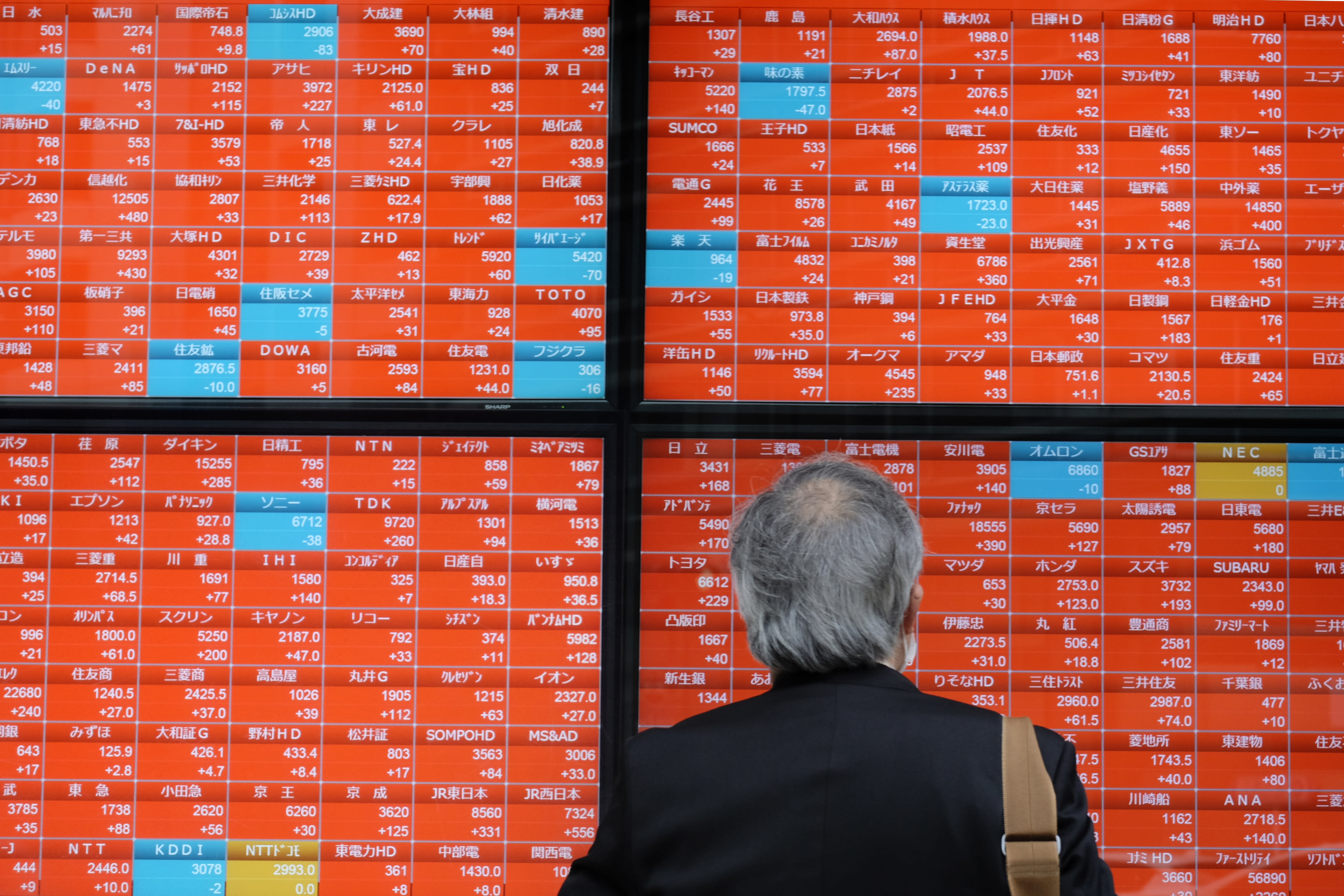
Stocks in Asia Pacific were mostly higher on Tuesday, while top trade representatives from Washington and Beijing had a call to discuss the implementation of their phase one agreement.
South Korea’s stocks led gains among the region’s major markets, with the Kospi rising 1.58% to close at 2,366.73.
Stocks in Japan also saw gains on the day, with the Nikkei 225 jumping 1.35% to 23,296.77 while the Topix index advanced 1.13% to 1,625.23.
Mainland Chinese stocks, on the other hand, were mixed by their close. The Shanghai composite shed 0.36% to about 3,373.58 while the Shenzhen component was above the flatline at approximately 13,669.41 . Hong Kong’s Hang Seng index edged 0.16% lower, as of its final hour of trading.
Shares in Australia also edged higher, with the S&P/ASX 200 up 0.52% to close at 6,161.40.
Overall, the MSCI Asia ex-Japan index gained 0.25%.
Meanwhile, U.S. Trade Representative Robert Lighthizer and Treasury Secretary Steven Mnuchin had a call with Chinese Vice Premier Liu He Monday evening stateside to “discuss implementation of the historic Phase One Agreement between the United States and China,” according to a statement released by the Office of the U.S. Trade Representative. The conversation was also confirmed by Chinese state media agency Xinhua.
According to the USTR: “Both sides see progress and are committed to taking the steps necessary to ensure the success of the agreement.”
Coronavirus treatment hopes
Shares of airlines in Asia Pacific rose on Tuesday. In Hong Kong, shares of China Eastern Airlines jumped 4.67% while China Southern Airlines surged 5.71%, as of their final hour of trading. Similar gains were seen in Japan, where ANA Holdings soared 7.18% on the day. Meanwhile in Singapore, Singapore Airlines also gained 4.08% in afternoon trade.
The moves upward in airline stocks followed their counterparts stateside such as United Airlines on Monday, which came on the back of positive coronavirus developments.
The Food and Drug Administration approved the use of convalescent plasma as a treatment for coronavirus patients, though scientists and public health officials have raised doubts over its effectiveness as a treatment. U.S. President Donald Trump’s administration is also reportedly considering fast-tracking an experimental vaccine from the U.K.
“Positive vaccine news over the past couple of months has been one of the key drivers of equity market overall,” Garth Bregman, head of investment services for Asia Pacific at BNP Paribas Wealth Management, told CNBC’s “Street Signs” on Tuesday. “As long as this positive news remains there, markets will continue to be a case of buy on the rumor, sell on the news.”
Meanwhile, Invesco’s Arnab Das told CNBC that there are “good reasons to be hopeful” on the coronavirus vaccine front but “no reason really to bank on it.”
“I don’t think … the hope for a vaccine can be any kind of foundation for public policy or for an investment strategy,” Das, global market strategist at Invesco, told CNBC’s “Capital Connection” on Tuesday. “There hasn’t been — ever — a human coronavirus vaccine.”
Overnight stateside, the S&P 500 rose 1% to 3,431.28 and hit an all-time high, with Monday also marking the index’s first-ever close above 3,400. The Dow Jones Industrial Average gained 378.13 points, or 1.4%, to end its trading day at 28,308.46. The Nasdaq Composite added 0.6% to close at 11,379.72 and also reached a record.
Currencies and oil
The U.S. dollar index, which tracks the greenback against a basket of its peers, was at 93.16 after touching an earlier high of 93.347.
The Japanese yen traded at 106.18 per dollar after seeing levels below 105.5 against the greenback last week. The Australian dollar changed hands at $0.717 following a decline yesterday from levels around $0.72.
Oil prices were mixed in the afternoon of Asia trading hours, with international benchmark Brent crude futures up 0.35% to $45.29 per barrel. U.S. crude futures were below the flatline at $42.61 per barrel.
— CNBC’s Fred Imbert contributed to this report.
Source: CNBC
